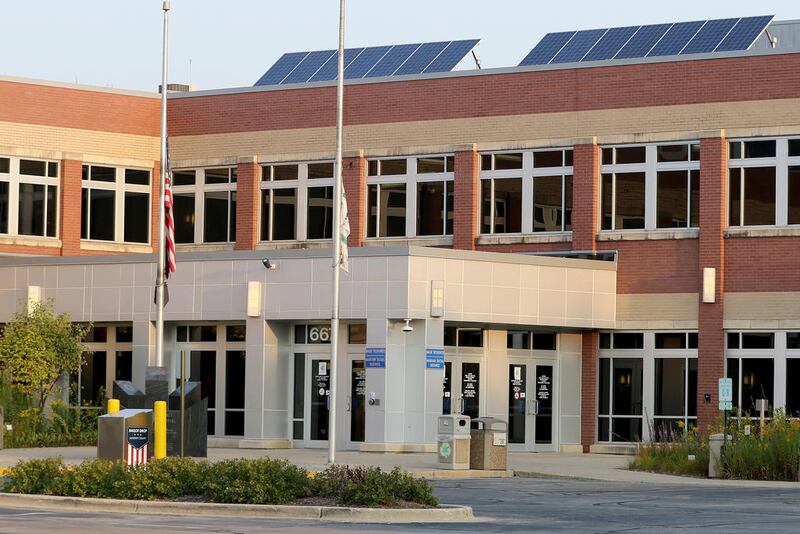In mid-May, staff from Treasurer Donna Kurtz’s office came to her “extraordinarily concerned” that there was not enough money in the county’s general fund bank account to cover payroll.
“Not just one payroll cycle, but two payroll cycles,” Kurtz told the McHenry County Board on Thursday. “We just ran out of money.”
Kurtz sold county investments to cover that gap, but expects that difference, between cash on hand and monthly bills, to widen significantly in the years ahead unless there are “massive spending cuts” and a levy increase.
“Without making that decision ... you will have difficulty paying your bills,” Kurtz said.
At its committee of the whole meeting Thursday, the last meeting before the 2026 budget and levy are published for a 30-day review, the board debated how to address that gap going forward.
The lead option now is using a so-called “lookback” provision in state law that allows the county to increase its levy to a higher previous level.
Last year, the county levied $65 million in property taxes after eliminating the Mental Health Board levy, said Kerri Wisz, who is the chief financial officer. In Spring 2024, voters passed a sales tax increase to fund the mental health services, with assurances from officials that the tax levy would be lowered in exchange.
If the lookback is approved by the board in November, it would allow a 2026 levy of $73.8 million – what was levied in the 2023 tax year.
Because the county may not need all of those funds, a portion – at least $1.7 million but potentially more – would be rebated back to taxpayers, said Finance Committee Chair Michael Skala.
If every potential spending cut outlined so far is made, that could add another $1.2 million to the abatement, Wisz said.
Some board members said returning to that previous levy might be a step back too far.
“I don’t believe we have cut enough,” Jim Kearns of Huntley said. “I want to see what they rest of our departments have done to give a little bit here,” adding it was hard to support the lookback without making more cuts.
He said he’s a yes vote, but “we still need those cuts.”
Board member Terri Greeno, who attended the meeting remotely, said she believed staff would provide four budget scenarios for consideration, including versions that held the line on the levy and spending.
“We have gone to something ... so far removed” from what voters were told ahead of the 2024 referendum, she said.
“We said we would not put that back on the property tax,” Greeno said.
Cuts have been made, including 18 personnel across six departments. The proposed budget also increases fees charged by the health departments and transfers funds to help the balance sheet.
Other potential savings include further staff reductions, reductions in merit raises to nonunion employees, elimination of support to the University of Illinois Extension office and the Soil and Water Conservation District and elimination of County Board members’ health insurance.
Overall, the County Board has done “an unbelievable, responsible job in holding down property taxes,” board member Pam Althoff said, adding that the county levy makes up just 6% of the residents’ bill. She said the amount of property taxes paid to the county by the average homeowner has increased from $538 to just $564 over the past 20 years.
The budget and levy are on the County Board agenda Tuesday, but not for a vote up or down. Instead, the items are placed on a 30-day review, during which residents and the board can inspect them and suggest changes.
That 30-day comment period is to “hear, listen and sharpen our pencils,” County Administrator Peter Austin said, adding that changes can be made before final approval.
The final budget is set for approval at the Nov. 18 meeting.

:quality(70)/s3.amazonaws.com/arc-authors/shawmedia/185fbfd8-8216-43d7-8beb-cd8992be6fe5.png)